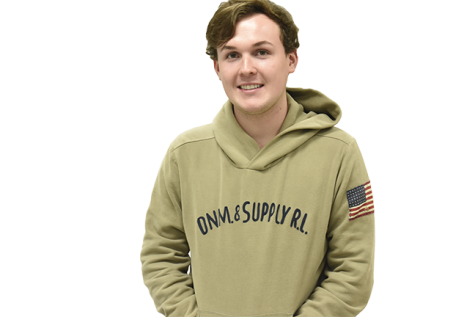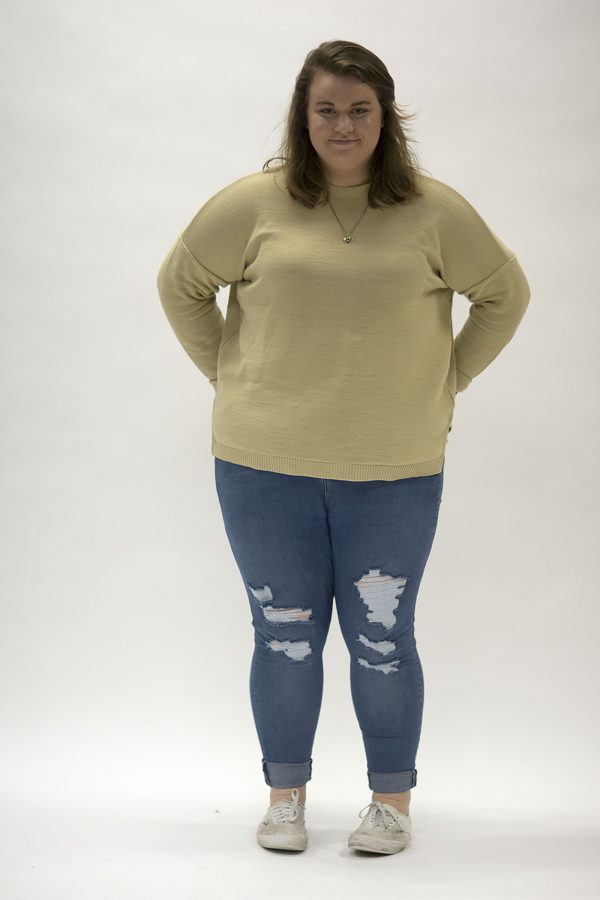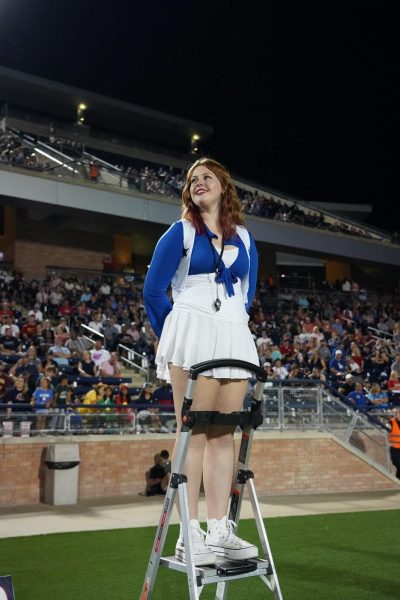Love Yourself
Senior explores what it means to be “plus size”
Loving yourself is oftentimes a challenge. With how the world defines beauty and body image, confidence is hard to obtain.
Elysabeth Martin, a senior with a significant group of supporters, uses her social media outlets to show the world that beauty doesn’t mean only tall, skinny and blonde, but beauty is everybody.
Body image is defined as how you see yourself and how you think you look. This is more often than not negative; however, in the past few years a movement has swept the world that is constructing beautiful body images and making people realize that all body sizes are perfect in their own ways.
The growth of social media has made the body positivity movement grow, and Elysabeth has decided to contribute to the cause.
“Twitter especially has really shaped the importance of this movement,” Elysabeth said.
Her personal Twitter account shines a spotlight on how important it is to live as your true self and appreciate your body along the way.
Elysabeth has no problem with the use of the term “plus size,” however she finds it annoying when shopping for clothes. The clothes in these “plus size” areas of stores are usually more expensive.
“Obviously it is logical to think more fabric, more money,” Elysabeth said.
However she said she feels that this justifies bigger people paying for being bigger. Another part of shopping plus size that leads to frustration is not being able to find clothes for all definitions of the term plus size. Elysabeth said she feels that “Forever 21’s plus-size section includes extra large, which [she] thinks is wrong because that is a ‘normal’ size in other stores.”
Most plus-size sections in stores neglect to include men’s clothing options. Most online retailers only offer a plus size area for women which has led to men feeling like their options are more limited.
“There needs to be more sections for different body types,” Elysabeth said. “Hourglass, pear, apple: these are all different types of bodies and they should be represented.”
Since people are becoming more accepting of different body types, industries must keep up. Recently, Barbie has come out with dolls that have diverse body types. The “plus-size” Barbie is labeled “curvy” and doesn’t represent what most curvy girls look like; these dolls represent more of a median between all body types. However this is a start.
“I love the idea because I grew up playing with Barbies,” Elysabeth said. “Being that young, I kind of thought about it like why don’t the dolls look like me? Now that they have changed it, I love it however their curvy is still just an average between the biggest and the tiniest. Overall, this is still a good thing.”
When most people think of body shaming in today’s culture, fat shaming defines this issue. Yet even though thinner people are thought of as the perfect body type, “too thin” is shamed just as often. Those considered too thin by society are deemed “anorexic” or accused of having some sort of eating disorder.
“Smaller people in general have body issues too,” Elysabeth said.“It is really important to include both bigger and smaller people. There is almost like privilege with skinny girls as opposed to bigger girls, but this doesn’t mean they are not shamed just as often.
Elysabeth Martin represents positive body image in all respects. She has a voice for those that are afraid to speak up and a mindset that she hopes to change the world with.
“People I don’t even know come up to me and say ‘I love the way you love yourself and have so much confidence,’” Elysabeth said. “It’s really so amazing what social media can do.”

Senior Coleman Pyeatt loves seeing the world, eating Thai food and watching Seinfeld. He plans to study journalism and fashion at Fordham University in...







